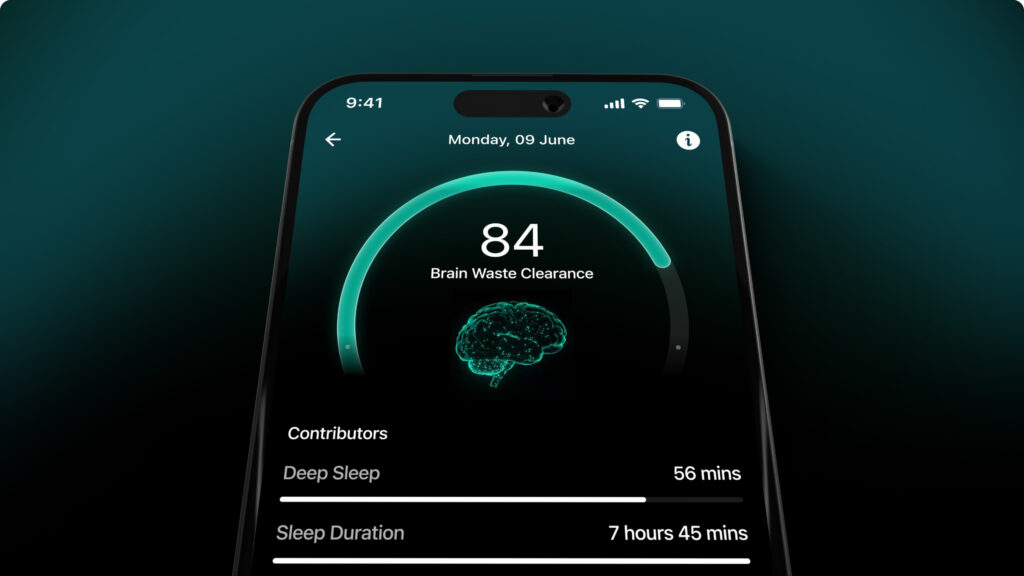Rewiring the brain: The Role of Gratitude in Mental Health
To most of us, the word ‘gratitude’ may sound empty and wrung out from overuse, thanks to celebrities and self-help gurus who have watered it down to a hashtag. But is there actual science behind the practice of gratitude and its impact on mental health? Let’s refresh our understanding of the word through a psychological lens before we get to the research.
What is gratitude?
In a paper on gratitude as a psychotherapeutic intervention published in the Journal of Clinical Psychology in 2013, Robert Emmons and Robin Stern explain:
‘Gratitude has a dual meaning: a worldly one and a transcendent one. In its worldly sense, gratitude is a feeling that occurs in interpersonal exchanges when one person acknowledges receiving a valuable benefit from another. Gratitude is a cognitive-affective state that is typically associated with the perception that one has received a personal benefit that was not intentionally sought after, deserved, or earned but rather because of the good intentions of another person.’ (1)
Psychological benefits of gratitude
Positive psychology (an applied scientific approach to optimal functioning) continues to emphasize the value of gratitude for our overall well-being.
Deeper relationships
Gratitude plays a central role in strengthening and establishing relationships. Studies show that people who express their gratitude for each other tend to be more readily forgiving, an essential quality when it comes to sustaining long-term relationships. (2) Narcissism, too, was found to be weaker in those who practised gratitude. (3) Acknowledging any help received from others by giving thanks also promotes, strengthens and maintains connection and satisfaction in relationships. (4)
More empathy
Gratitude helps people feel empathy and express sensitivity and concern for others. According to Nathan DeWall, a psychology professor at the UK College of Arts and Sciences, counting your blessings makes you more likely to empathise with other people and lowers daily aggression and hurt feelings. (5)
General well-being
A high level of gratitude has a significant positive impact on depression, self-esteem and overall psychological well-being, according to the findings of researcher Chih-Che Lin. (6) While depression is a complex mental illness that cannot be cured by the simple act of being grateful, studies suggest that there is value in incorporating a practice of gratitude in therapy and treatment. (1) Studies show a regular expression of gratitude can instil confidence in people. (35)
Increased happiness and optimism/hope
Gratitude and happiness are inextricably linked in positive psychology research. Feeling grateful and giving thanks helps us access positive emotions, cherish good experiences, improve health, deal with adversity and build lasting relationships. (7) In one study, participants were split into three groups and asked to write a few sentences each week on specific topics. The first group wrote about the things that had happened during the week that made them feel grateful. The second, about things that irritated, upset or displeased them. And the third wrote about events that had affected them without emphasizing their positive or negative impact. After ten weeks, those who wrote about gratitude felt optimistic, exercised more and had fewer visits to physicians than those who focused on their irritations. In another study, participants were asked to write and hand-deliver a letter of gratitude to someone they had not properly thanked for their kindness, which led to them exhibiting a sharp increase in happiness instantly. The impact of gratitude also exceeded all other positive psychology interventions, with positive effects lasting for a month. (7)
More self-control
Self-control is directly related to our long-term well-being because it helps us stick to our resolutions such as quitting smoking or eating healthy. (1) A study showed that people who are grateful tend to resist the temptation to cheat. Researchers suggest that gratitude inculcates a sense of social obligation that makes them treat people in a fair manner. (8) (34) The human mind tends to value instant gratification over delayed rewards which calls for self-control, essential for our long-term security and well-being. Supporting this view, the study found that sadness exacerbated financial impatience, while gratitude reduced impatience even when real money was at stake. (8)
Higher resilience
Gratitude can help us build and tap into psychological and social resources that make us resilient. (9) A school study found that the practice of gratitude led to a sense of relatedness with significant others, which resulted in resilience and well-being in the students. (9) A similar study on college students found that sending reminders to students to intentionally practice gratitude towards learning, may increase their capacity to focus and remain resilient in the face of learning challenges. (10)
Enhanced physical health
The positive effects of gratitude don’t just end with our psychological and emotional well-being. They can, quite literally, lead to a happy heart. A study conducted to examine the relationship between gratitude and heart health showed that among 186 men and women with an average age of 66—who already had heart damage either from years of sustained high blood pressure, a heart attack or even heart infection—the more grateful people were healthier. (11) The study also included blood tests to measure inflammation, which is the body’s natural response to injury or the buildup of plaque in the arteries and found lower levels among those who were grateful—a sign of a healthy heart. In a follow-up study, 40 patients were tested for heart disease and its biological indications, such as inflammation and heart rhythm, were noted. Half the patients were asked to keep gratitude journals, writing about two or three things they were grateful for, most days of the week. When all 40 patients were retested after two months, inflammation levels had reduced and heart rhythm had improved among those who kept a journal. Their risk for heart disease before and after journalling was also compared and it was found that the risk decreased after two months of keeping a gratitude journal. (12)
Catharsis
Catharsis is a process by which we purge strong emotions. Crying after a traumatic event, for example, can provide an outlet for such emotions, which makes the experience of crying, cathartic. Catharsis and gratitude work together. When we ‘fail’ to meet an obligation, for example, expressing gratitude towards the person we let down can help release the guilt we feel as a result. Likewise, possessions from loved ones who have passed on can allow the new owner to reflect on the object as well as the loved one with gratitude. This way, gratitude works as an agent of catharsis which leaves both parties satisfied in the end. (1)
Can gratitude rewire the brain?
xIn a neurological experiment conducted by the University of California, magnetic resonance imaging (MRI) was used to measure brain activity in participants in whom feelings of gratitude were induced by giving them gifts. (21) The areas of the brain that were set off by gratitude were the anterior cingulate cortex and medial prefrontal cortex, which are associated with moral and social cognition, reward, empathy and value judgment. This led researchers to conclude that gratitude supports an overall positive attitude towards others and relieves stress. (22)
Since gratitude activates the hypothalamus, the part of the brain that regulates hormones responsible for a number of crucial functions such as body temperature, emotional responses, appetite and sleep, it also enhances metabolism and regulates stress. (14) (23)
Studies have found that even simple gratitude writing interventions such as writing gratitude letters or gratitude journaling, leave a lasting imprint on the brain. They make people feel and act grateful, and significantly modulate the medial prefrontal cortex, even three months after the practice. According to the study, people who wrote gratitude letters were found to have lasting neural sensitivity to gratitude. (24) This lasting effect of gratitude on the brain has positive psychological implications. In adolescents, feelings of gratitude have been shown to have a protective effect against bullying, victimization and suicide risk. (25)
While the neuroscientific research on gratitude is still in its early stages, studies so far suggest that practising gratitude may help rewire the brain to be more sensitive to the experience of gratitude in the future, which can lead to improved mental health in the long run. (26)
Gratitude practices: Flex your gratitude muscle
There are countless ways to be thankful and express gratitude, but here are a few simple, yet powerful, tried-and-tested exercises to get you started.
Journaling
One of the most popular gratitude practices, journaling involves looking back reflectively on your day, the past few days or a week and writing down 3-5 things you’re especially grateful for. If you have trouble getting started, picturing your life without the people, opportunities and circumstances that mean the most to you could be an excellent place to get you going. (27) There is, however, some disagreement on how often one should journal. While some people favour writing every day, research leans heavily in favour of writing occasionally (once or twice per week). (28) This is because gratitude works best when we can really relish and appreciate the gift of something in our lives rather than going through the motions and approaching it as if it were something on your daily to-do list. (28) Gratitude journaling has been found to decrease materialism and boost generosity among adolescents and encourage healthier eating. (29) (30) One thing to keep in mind when we practise gratitude, however, is to never dismiss or invalidate our feelings of stress, which can be a form of gaslighting and detrimental to our mental health. ‘You can have both,’ says Nekeshia Hammond, a psychologist and author in Brandon, Florida, ‘a strong sense of gratitude along with feelings of sadness, confusion or anxiety.’ (36)
Mindfulness and gratitude
Mindfulness is the ability to be fully present and aware of our surroundings and what we’re doing without being overly reactive or overwhelmed by them. (31)
Gratitude and mindfulness are closely related because when we are grateful, we are mindful of the good all around us and the kindness and goodwill others extend to us. (32) Mindfulness trains us to slow down and notice everything in our lives—from the beauty of nature and the kindness of strangers to such things as good health and our capacity to earn a living—so we always have something to be grateful for. There doesn’t have to be anything major going on to tap into feelings of gratitude. Anchoring ourselves to the present moment by bringing attention to our breath and tuning into our senses can have a profound effect on our ability to notice and be thankful for the good all around us. (32)
Expressing gratitude
Expressing our gratitude towards others, especially those closest to us, can do wonders in strengthening and solidifying our relationships. (33) But studies show that we benefit from the mere act of expressing gratitude, such as in a gratitude letter, even when it’s not shared with the person it was intended towards. (26)
Visual cues
When we’re getting started with the practice of gratitude, we may struggle with mindfulness or simply forget to be thankful. In this case, having visual reminders such as photographs of the people and animals we love when they’re not physically around us, or little tokens of the things that we get to have but take for granted, can nudge us in the right direction. (32)
Gratitude walk
Walking has several health benefits, from being an instant stress-buster and relieving lethargy to supporting cardiovascular health and decreasing blood pressure. So taking a walk in a grateful state of mind can be deeply nurturing both mentally and physically. The goal of the gratitude walk is to observe and take in all your surroundings. Notice how your feet feel on the ground, take in the smell of fresh air, the colours of the leaves and everything around. Taking a gratitude walk with a loved one can make this experience even more meaningful. (27)
Gratitude reflection
An important part of mindfulness meditation, gratitude reflection involves settling into a relaxed posture, taking a few deep and calming breaths and consciously bringing to mind all the things and people you’re grateful for. If you could use some help getting started, begin with experiencing your surroundings through your senses and say to yourself ‘for this, I am grateful.’ Repeat this as you call to mind the people in your life that you’re close to and lean on, then turn your attention to yourself, your imagination, your communication and the gift of being a unique individual. Finally, bring your attention to the gift of life itself, your health and every good thing you have access to, so you can appreciate and give thanks for everything you have. (27)
Conclusion
Gratitude is more than just another new-age trend. Research in positive psychology and neuroscience confirms that the practice of gratitude has lasting effects on our overall well-being. Some of the benefits of gratitude include deeper relationships, more empathy, increased happiness and optimism, more self-control, higher resilience and self-esteem, enhanced physical health and catharsis. The feelings of lasting happiness and contentment that come upon us when we feel thankful have a physiological basis. When we feel or express gratitude, the body releases two crucial neurotransmitters, serotonin and dopamine, the ‘feel good’ chemicals that instantly make us feel happier and uplifted. Making gratitude a regular practice can help us strengthen these neural pathways and create a positive nature from within. Even simple exchanges of thankfulness can affect bodily functions and psychological conditions by reducing pain, improving quality of sleep, regulating stress and reducing anxiety and depression. Neurologically, gratitude activates the anterior cingulate cortex and the medial prefrontal cortex, associated with moral and social cognition, reward, empathy and value judgment. It also activates the hypothalamus, which has downstream effects on metabolism and stress. While neuroscientific research is still in its early stages, studies so far suggest that gratitude can rewire the brain to be more sensitive to the experience of gratitude in the future, leading to improved mental health in the long run. While there are innumerable ways to practice gratitude, some popular methods include gratitude journaling, mindfulness, expressing gratitude, keeping visual reminders around, gratitude walks and gratitude reflection.
Disclaimer: The contents of this article are for general information and educational purposes only. It neither provides any medical advice nor intends to substitute professional medical opinion on the treatment, diagnosis, prevention, or alleviation of any disease, disorder, or disability. Always consult with your doctor or qualified healthcare professional about your health condition and/or concerns and before undertaking a new health care regimen including making any dietary or lifestyle changes.
References
- https://positivepsychology.com/gratitude-appreciation/
- https://www.researchgate.net/publication/232477938_A_Scenario-Based_Scale_of_Willingness_to_Forgive
- https://psycnet.apa.org/record/1997-39072-005
- https://www.researchgate.net/publication/5316201_Beyond_Reciprocity_Gratitude_and_Relationships_in_Everyday_Life
- https://psychology.as.uky.edu/gratitude-antidote-aggression







